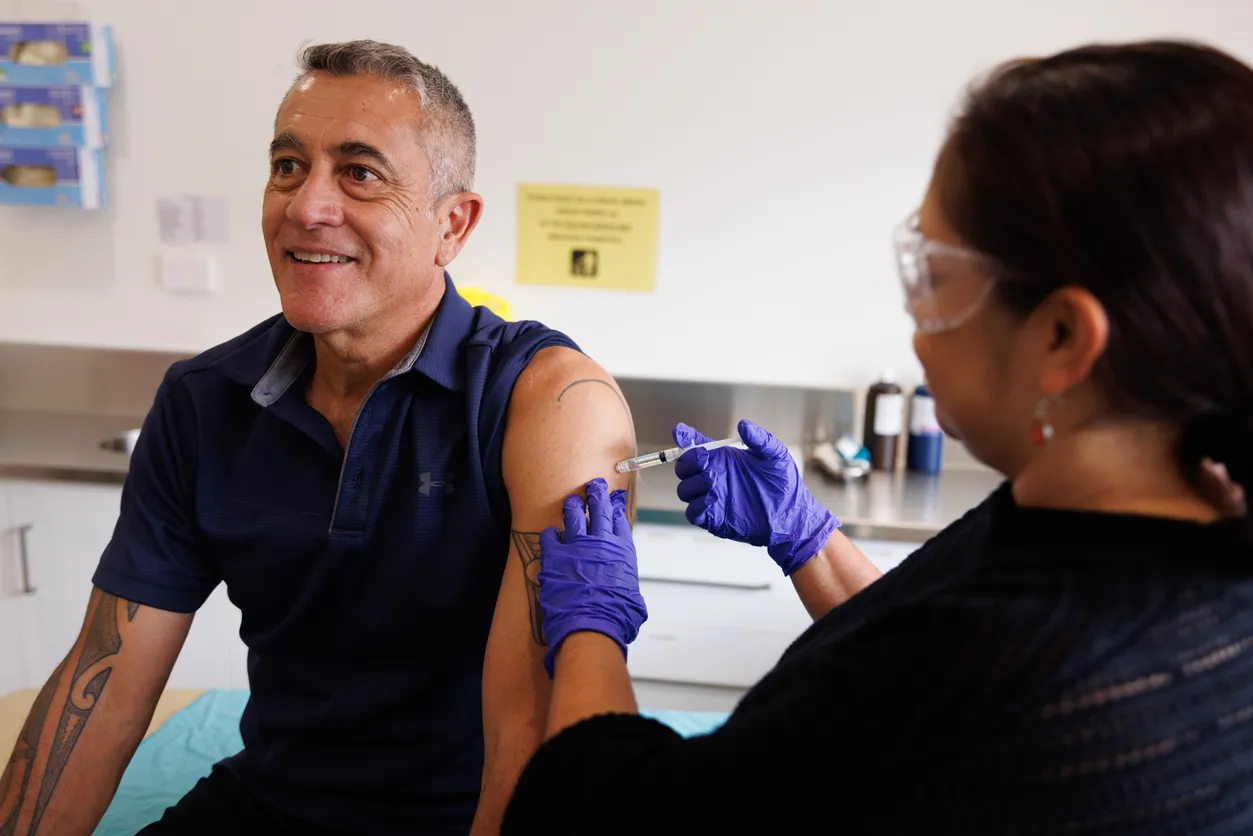Common Vaccine Can Lower Your Risk of Dementia, Heart Attack, and Stroke — Best Life

As we age, not only do we need to be on top of diet and exercise to focus on our cardiovascular health, but we also need to worry about protecting ourselves against diseases by staying up to date on important vaccinations. But while these two concerns don’t typically go hand-in-hand, mounting evidence may suggest otherwise. Scientists say that getting the shingles vaccine could significantly lower your risk of age-related health issues like dementia, heart attack, and stroke.
RELATED: Doctors Say This 1 Superfood Can Lower Your Dementia and Alzheimer’s Risk.
New data shows shingles vaccines could help with other health concerns.The latest research comes from a meta-analysis and review presented on August 30 at the 2025 European Society of Cardiology Congress in Madrid, Spain.
The team looked at 19 studies before cutting down the number to nine that met the inclusion criteria to determine whether the herpes zoster (the virus that causes shingles) vaccine could provide some benefits in heart health events. Just above half the participants were male for all included studies, while seven of them reported having middle-aged means of 53.6 to 74 years old.
Results of the analysis found that there was an 18 percent reduction in cardiovascular health emergencies in adults aged 18 or older, and a 16 percent reduced risk for participants who were 50 and above. The results were true of both the recombinant herpes zoster vaccine (RZV) and the live attenuated zoster vaccine (ZVL).
“We looked at the currently available evidence, and found that in this analysis, vaccination against herpes zoster was associated with a lower risk of cardiovascular events, such as heart attacks or strokes,” Charles Williams, MD, the global associate medical director for vaccines at pharmaceutical company GSK and the study’s lead author, said in a statement. “Further research studies are now needed to find out whether this association can be attributed to an effect of herpes zoster vaccination.”
RELATED: Taking Too Much of This Supplement Can Hurt Your Heart, Doctors Warn.
Research has also shown it can be beneficial for brain health.It’s not just cardiovascular health where the common shingles vaccine can play a beneficial role: It might also help stave off cognitive decline.
In a study published in the journal Nature last April, researchers at Stanford University collected data from roughly 280,000 middle-aged to older adults from Wales over seven years. Crucially, a vaccine policy change in the U.K. in September 2013 dictated that only adults who were about to turn 79 were eligible to receive the shot, which researchers said created a “natural experiment” that allowed for dementia rate comparison.
The team took other factors into consideration, including personal medical histories and other medications being taken during the study. However, the results showed that participants who had received the Zostavax shingles vaccine (which is now outdated) were 20 percent less likely to show signs of dementia within seven years compared to those who didn’t. These findings were also found to be stronger in women than in men.
The researchers then planned a follow-up by conducting a nearly identical study in England, except with a nine-year window that yielded the same results. Studies replicated in Australia, Canada, and New Zealand also came back with the same findings.
“If these findings are truly causal, the zoster vaccine will be both far more effective as well as cost-effective in preventing or delaying dementia than existing pharmaceutical interventions,” the study’s authors concluded.
RELATED: This Is the No. 1 Heart Attack Symptom People Ignore, Doctors Say.
So, what does this mean for you?In their press release, authors of the recent meta-analysis cited prior research that has found a potential link between increased heart attack and stroke risk in the wake of someone developing shingles. But while they were enthusiastic that data might suggest the vaccines are effective in more ways in one, they were careful to point out specific limitations.
“Almost all the evidence came from observational studies, which are prone to bias and shouldn’t be used to infer causality,” Williams said. “All the studies used in the meta-analysis aimed primarily to investigate the use of herpes zoster vaccine to prevent shingles in the general population, which may limit the ability to generalise this research to people with a higher risk of cardiovascular events.”
Ultimately, Williams concluded that this means there’s a need for more research on the topic to better understand the implications.
We offer the most up-to-date information from top experts, new research, and health agencies, but our content is not meant to be a substitute for professional guidance. When it comes to the medication you're taking or any other health questions you have, always consult your healthcare provider directly.